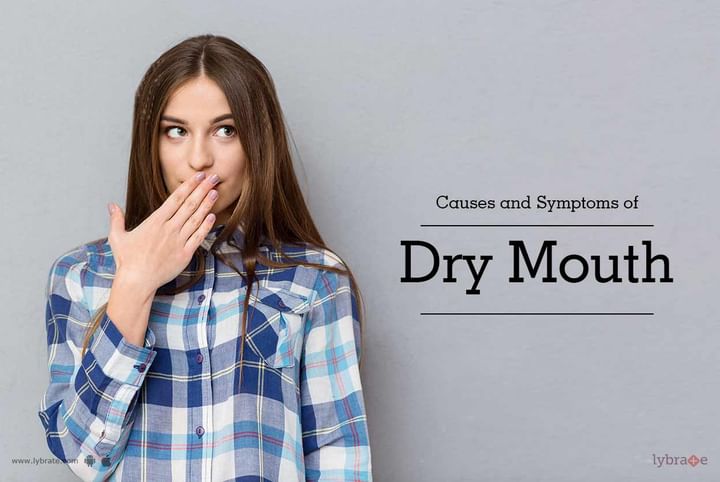Get the App
For Doctors
Login/Sign-up
Last Updated: Mar 29, 2023
BookMark
Report
Causes and Symptoms of Dry Mouth
When the salivary glands do not produce enough saliva, the mouth gets dry and uncomfortable. Due to certain conditions, such a phenomenon can occur and this condition is known as dry mouth or xerostomia. Xerostomia or dry mouth can occur due to multiple reasons. Read on more to find all about the different causes and symptoms of dry mouth.
Causes:
- Side effects of certain medications: Dry mouth occurs due to the effect of certain prescription and nonprescription medications. Drugs used to treat depression, pain, allergies, anxiety, epilepsy, obesity, nausea and psychotic disorders can cause dry mouth condition as a side effect. Sedatives and muscle relaxers can also cause dry mouth.
- Side effects of certain disease and infections: Certain diseases such as Alzheimer's disease, mumps, diabetes, hypertension, cystic fibrosis, anemia and Parkinson's disease can also cause dry mouth or xerostomia.
- Side effect of treatments: If the salivary glands are damaged due to certain reasons, then less saliva is secreted resulting in dry mouth. Certain treatments such as radiation treatments in the head and neck or chemotherapy sessions could indirectly cause dry mouth by damaging the salivary glands.
- Nerve damage: Dry mouth can also be due to a person suffering from nerve damage caused due to accident or surgery.
- Dehydration: Conditions like fever, excessive vomiting, diarrhea, excessive sweating, which cause dehydration can also cause dry mouth.
- Removal of salivary glands: Surgical removal of the salivary glands also causes dry mouth.
- Lifestyle choices: Certain lifestyle preferences such as chewing tobacco or smoking can cause dry mouth.
Symptoms:
Dry mouth has several symptoms. If you have some or all of the symptoms mentioned below, then you are more than likely suffering from dry mouth.
- A sticky and dry feeling in the mouth.
- The frequent feeling of being thirsty.
- A dry, parched feeling in the throat.
- The tongue being dry, raw and red.
- There is discomfort and problem while you are speaking or experiencing problems with chewing, tasting or swallowing food.
- Experiencing dry nasal passages, a sore throat or hoarseness in the voice.
- A tingling or slightly burning sensation in the mouth but particularly in the tongue.
- Having a bad breath.
Related Tip: "Why Oral Health in Older Adults Is Important"



+1.svg)
